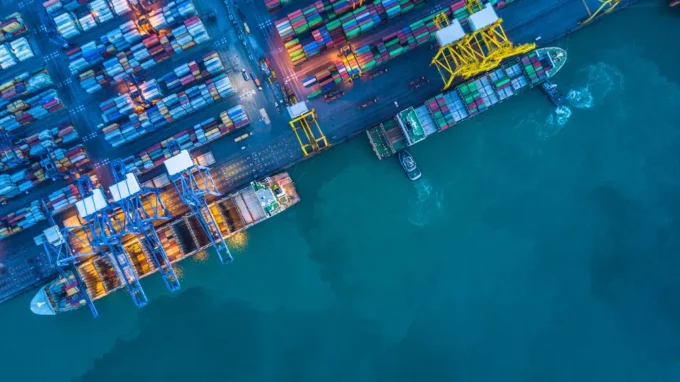International trade, a cornerstone of the global economy, brings nations together in a web of complex transactions and relationships. As businesses expand beyond borders, they encounter a myriad of regulations, agreements, and compliance requirements. Navigating the intricate landscape of international trade regulations is essential for success. This comprehensive guide explores the challenges, best practices, and compliance strategies that businesses must consider as they engage in the dynamic world of global trade.
International Trade Regulations

Source: magaya.com
1. Framework of International Trade Laws:
- World Trade Organization (WTO): The WTO serves as the bedrock of international trade laws, providing a platform for negotiations and dispute resolution. It aims to ensure that global trade flows smoothly, predictably, and freely.
- Free Trade Agreements (FTAs) and Regional Trade Agreements (RTAs): These agreements play a pivotal role in shaping international trade dynamics. FTAs, such as the Comprehensive and Progressive Agreement for Trans-Pacific Partnership (CPTPP), and RTAs, like the Mercosur in South America, foster economic cooperation by reducing tariffs and trade barriers between participating countries.
- Customs Regulations: A cornerstone of international trade, customs regulations are enforced by each sovereign nation. These regulations encompass a range of requirements, including documentation, valuation of goods, and adherence to specific product standards. Compliance with customs regulations is imperative for the seamless flow of goods across borders.
2. Compliance Challenges in International Trade:
- Tariffs and Duties: Understanding and navigating the tariff structures of different countries is vital. Tariffs, imposed on imported goods, directly impact the cost of products. Businesses need to strategize and assess the financial implications of tariffs on their pricing strategies and overall competitiveness in each market.
- Non-Tariff Barriers: Beyond tariffs, non-tariff barriers like quotas, licensing requirements, and technical standards present challenges. These barriers vary by country and industry, requiring businesses to conduct thorough market research. Adapting products and processes to meet diverse standards becomes essential for overcoming these non-tariff hurdles.
- Trade Sanctions: Compliance with international sanctions is critical. Violating sanctions can lead to severe legal consequences and damage a company’s reputation. Staying informed about evolving sanctions and ensuring that all business activities align with these restrictions is imperative. Regular audits and legal consultations help businesses maintain a comprehensive understanding of the complex landscape of trade sanctions.
- Customs Documentation: Accurate and complete documentation, including commercial invoices, packing lists, and certificates of origin, is essential for customs clearance. The challenge lies in ensuring that documentation complies with the specific requirements of each country. Embracing digital documentation solutions and staying abreast of changes in regulatory documentation requirements contribute to smoother customs processes.
- Intellectual Property Protection: Protecting intellectual property (IP) rights becomes complex when operating in diverse markets with varying levels of IP enforcement. Businesses must develop a comprehensive global IP strategy that includes registering trademarks and patents in target markets. Collaborating with legal experts in each jurisdiction helps navigate the intricacies of IP protection and enforcement.
Best Practices for International Trade Compliance

1. Due Diligence:
- Market Research: Thoroughly research target markets to understand local regulations, consumer preferences, and potential challenges.
- Supplier and Partner Vetting: Conduct due diligence on suppliers and business partners to ensure they adhere to ethical and legal standards.
2. Robust Documentation:fb
- Comprehensive Record-Keeping: Maintain accurate records of all transactions, contracts, and shipping documentation to demonstrate compliance.
- Digital Documentation: Embrace digital platforms for documentation to streamline processes and reduce the risk of errors.
3. Compliance Programs:
- Implement Compliance Policies: Develop and implement internal compliance policies to ensure all employees understand and adhere to trade regulations.
- Training Programs: Regularly train staff on international trade laws and regulations, emphasizing the importance of compliance.
4. Leveraging Technology:
- Automation: Utilize technology and automation for customs clearance, ensuring accuracy and efficiency in documentation processes.
- Trade Compliance Software: Invest in trade compliance software to stay updated on regulatory changes and manage compliance more effectively.
5. Legal Consultation:
- Legal Expertise: Seek legal advice to navigate complex international trade laws. Legal experts can provide insights into specific regulations affecting your industry.
6. Supply Chain Visibility:
- End-to-End Visibility: Implement technologies that offer end-to-end visibility into the supply chain, allowing businesses to identify and address compliance issues promptly.
Strategies for Overcoming International Trade Challenges

Source: fiscalnote.com
1. Tariff Optimization:
- Supply Chain Restructuring: Evaluate and optimize supply chain structures to minimize the impact of tariffs on the cost of goods.
- Duty Drawback Programs: Explore duty drawback programs that allow businesses to recover duties paid on imported goods.
2. Addressing Non-Tariff Barriers:
- Standardization: Align product specifications and standards with those of the target market to overcome technical barriers.
- Advocacy and Dialogue: Engage in advocacy and dialogue with relevant authorities to address non-tariff barriers hindering trade.
3. Managing Sanctions Compliance:
- Regular Audits: Conduct regular audits to ensure compliance with international sanctions and promptly address any identified issues.
- Legal Support: Seek legal counsel to navigate the complexities of sanctions imposed by various jurisdictions.
4. Strengthening IP Protection:
- Global IP Strategy: Develop a robust global intellectual property strategy to protect patents, trademarks, and copyrights in international markets.
- Partnerships: Collaborate with local partners and legal experts to enforce IP rights in diverse jurisdictions.
Case Studies: Successful International Trade Compliance

Source: global-4pl.com
1. Tesla Inc.:
Tesla strategically positioned its Gigafactories in regions with supportive trade policies, optimizing supply chain efficiency and minimizing tariff impact.
2. Apple Inc.:
Apple maintains rigorous compliance with intellectual property laws, employing legal teams globally to protect its brand and innovations.
3. Amazon:
Leveraging advanced logistics technology, Amazon ensures seamless customs clearance, reducing delays and optimizing cross-border trade.
Company Registration in Cyprus: A Strategic Business Hub

Source: linkedin.com
For businesses looking to establish a strategic presence in Europe, Cyprus offers an attractive business environment. The process of company registration in Cyprus is streamlined, and the country’s favorable tax regime, coupled with its strategic location, makes it an ideal choice for international businesses seeking to navigate the European market.
Navigating the Global Trade Landscape
International trade, while presenting numerous challenges, offers immense opportunities for businesses to expand their reach and thrive in a global marketplace. Navigating the intricate landscape of international trade regulations requires diligence, strategic planning, and a commitment to compliance. By understanding the complexities, implementing best practices, and leveraging technology, businesses can successfully navigate the global trade landscape, unlocking new possibilities and contributing to a more interconnected and prosperous world.







